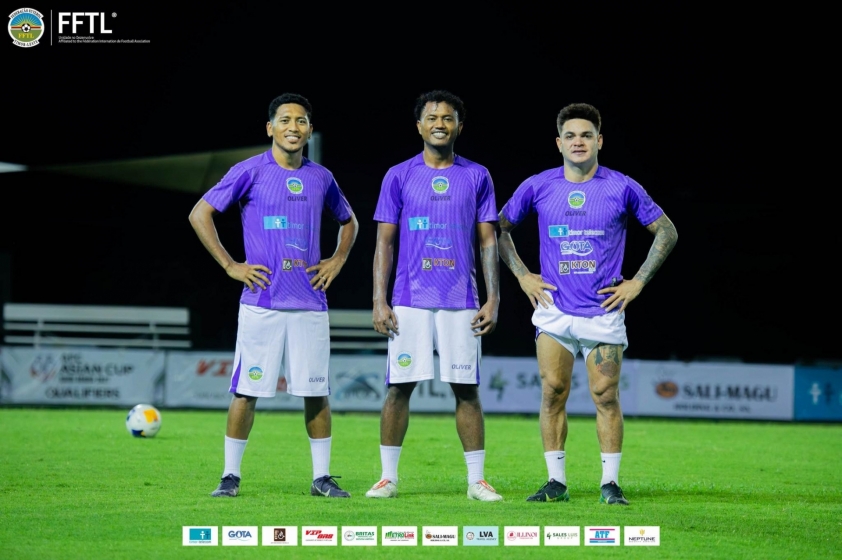More than Malaysia, a country that once illegally naturalized up to 12 players
Timor-Leste was heavily penalized for illegally naturalizing 12 players.
The scandal over naturalized players is causing the Football Association of Malaysia (FAM) to face an unprecedented crisis, recalling the notorious Timor-Leste case nearly a decade ago, a costly lesson about lax governance and player eligibility verification in Asian federations.
In 2016, the Asian Football Confederation (AFC) expelled Timor-Leste from the 2023 Asian Cup qualifiers after discovering that 12 Brazilian-born players competed for the national team using forged documents between 2011 and 2015.

The AFC annulled all match results involving ineligible players, severely punished the Timor-Leste football federation, and banned several related officials. In a statement on December 20, 2016, the AFC emphasized: “We have a zero-tolerance policy towards the use of ineligible players. Member associations must ensure all players comply with AFC and FIFA regulations.”
Initially, Timor-Leste denied responsibility and appealed, but after failing to convince FIFA, they were forced to cooperate with investigations, restructure their management, and tighten player eligibility verification. The entire process, from AFC’s investigation launch in 2015 to FIFA’s final sanction approval in 2018, lasted nearly three years and severely impacted the country's football development.
Currently, Malaysia is on a similar path. On September 25, FIFA’s Disciplinary Committee heavily fined FAM and suspended seven naturalized players—Facundo Garcés, Imanol Machuca, Héctor Hevel, Gabriel Palmero, Rodrigo Holgado, João Figueiredo, and Jon Irazabal—for allegedly providing false information regarding their eligibility to play for the national team.

According to a 19-page report released by FIFA, FAM is accused of registering naturalized players without thoroughly verifying their legitimate connections to Malaysia, especially regarding residency records and document origins.
FAM has initiated an internal audit of its player registration procedures, describing it as “a tough but necessary governance lesson.” A FAM official revealed that their appeal will focus on the legality of the players’ citizenship and the verification process with Malaysia’s National Registration Department.
Sports lawyer Richard Wee warned: “The Timor-Leste case shows this process can take one to two years. The most important thing for FAM now is transparency and cooperation, not confrontation.”
The Timor-Leste incident isolated the country for many years, causing it to miss two consecutive Asian Cups and lose regional credibility. For Malaysia, the path forward depends on how FAM handles the current crisis—with openness, patience, and genuine reform, rather than denial and resistance.


Wonderfulshortvideo
🥶🥶


The Nuno Mendes x Cristiano Ronaldo link-up 😮💨🔗


Harry Kane is the BEST striker Thomas Tuchel has EVER worked with 👀🏴


User esportapi has posted a video.


Marcus Rashford pays tribute to Cristiano Ronaldo 👏


Cristiano Ronaldo is the


User FieldFrenzy has posted a video.








 Links
Links
 Contact
Contact
 App
App


